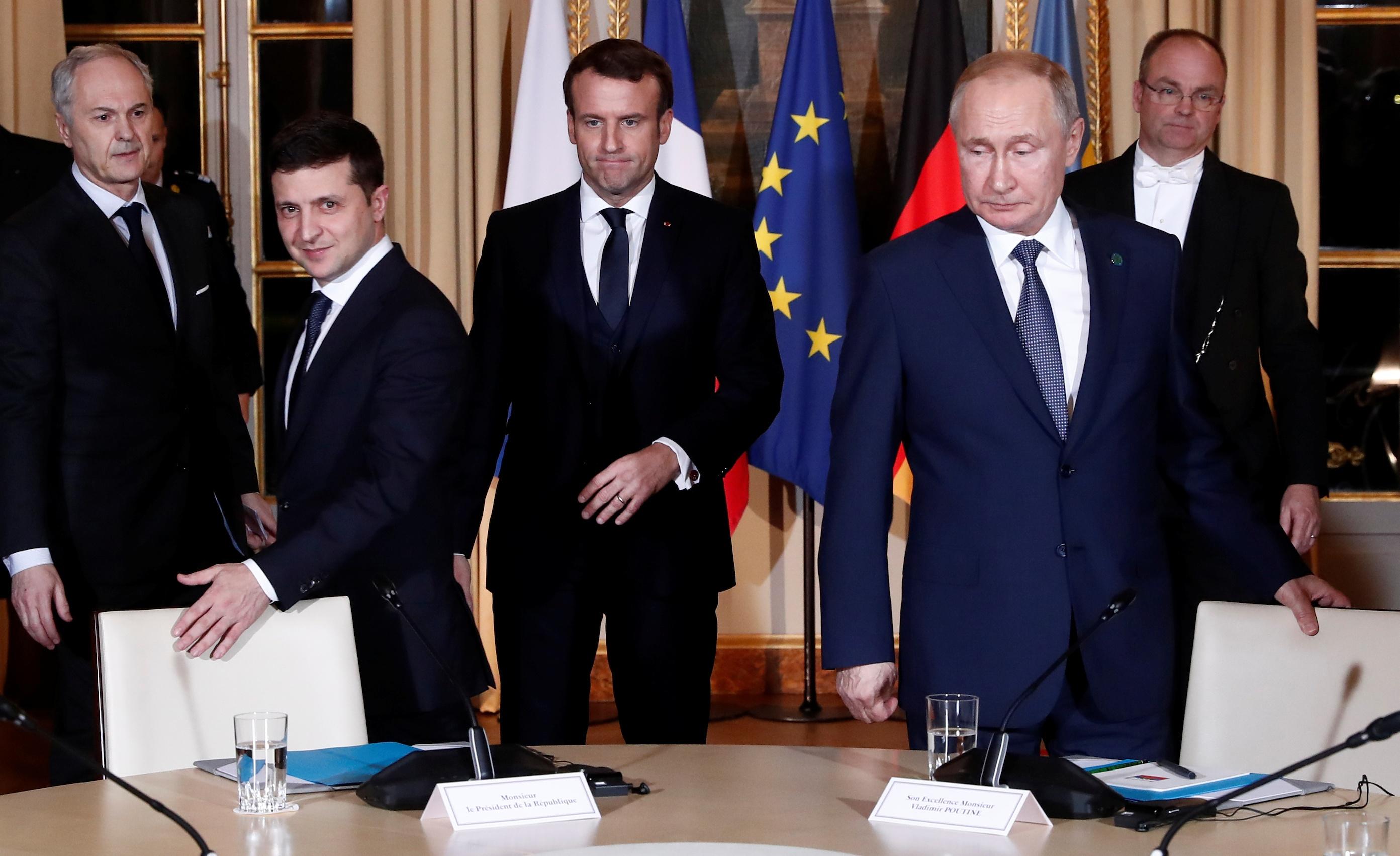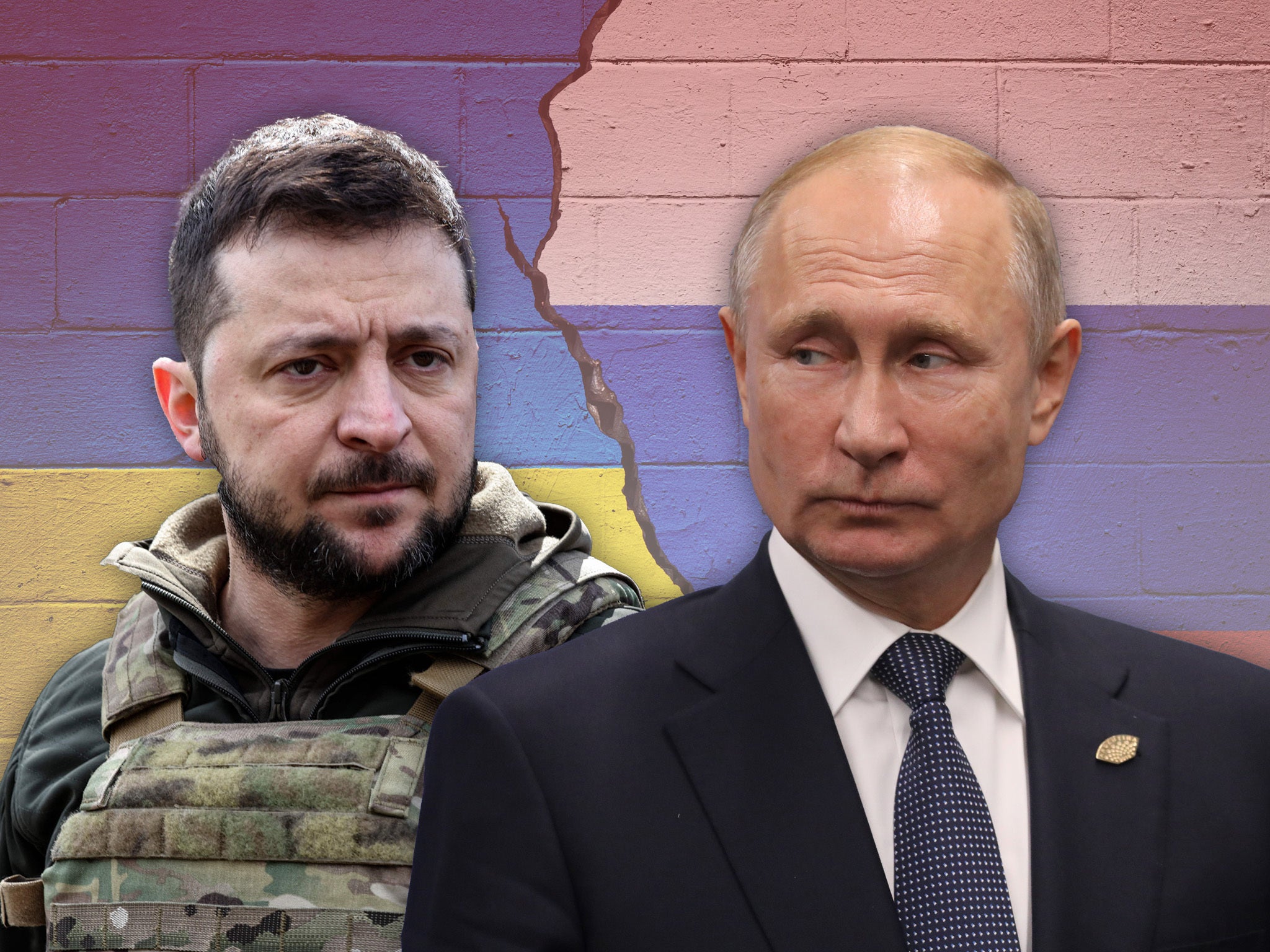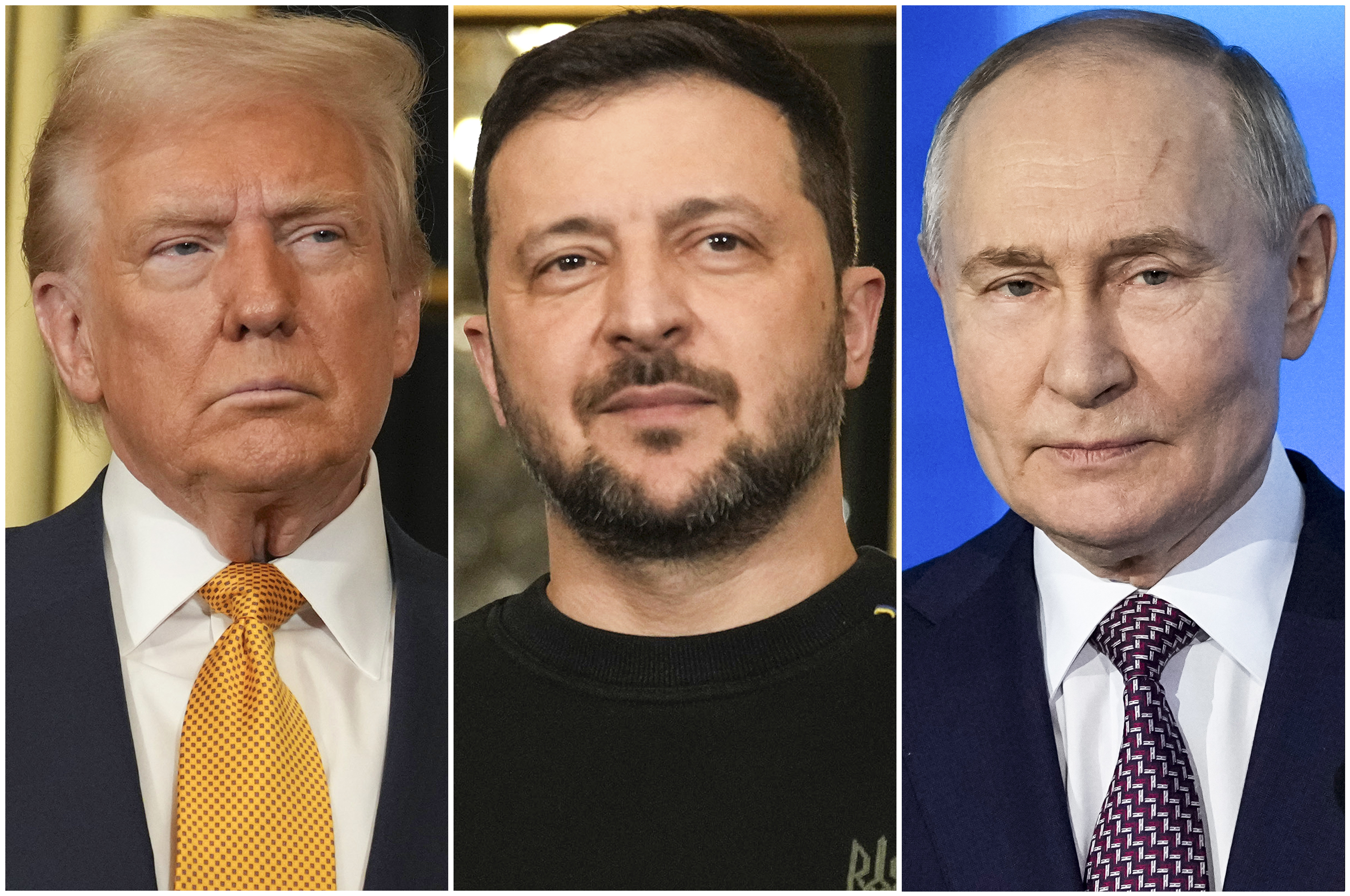Multiple Lenses on the Russia-Ukraine War: Power, Ideology, and the Elusive Road to Peace
The Russia-Ukraine war is one of the most consequential and multi-layered conflicts of the 21st century. At its surface, it appears to be a territorial invasion by a larger state against a smaller neighbor. But beneath the headlines lie a range of historical, ideological, geopolitical, and psychological dimensions. This is not just about tanks and trenches — it is a conflict that echoes through the halls of empires, democracy movements, and post-colonial reckonings.
Let’s unpack several distinct — yet interconnected — ways to understand the war and its broader implications.
1. Big Powers vs. Small States: Russia’s Monroe Doctrine?
One way to understand Russia’s aggression is through the lens of great power behavior. Vladimir Putin, in asserting that Ukraine should not fall under Western influence or join NATO, is essentially reviving a Russian version of the Monroe Doctrine — the 19th-century U.S. policy that warned European powers to stay out of the Americas.
From this view, Russia is acting not necessarily out of insecurity, but out of hegemonic instinct. It sees Ukraine not as a sovereign country making sovereign decisions, but as a zone of strategic interest, a buffer that must remain under Moscow’s sway.
But the flaw in this argument is exposed by Eastern Europe's voluntary embrace of NATO. Countries like Poland, Latvia, Lithuania, and Romania wanted to join the alliance — and paid a high price in terms of domestic reforms to do so. These are not puppet states manipulated by Washington; they are nations fleeing the legacy of Soviet domination.
2. Democracy vs. Autocracy: A Global Proxy Battle
Another powerful framing is ideological: this is a war between autocracy and democracy.
Ukraine represents more than just a state on the map — it’s an experiment in democratic development on Russia’s doorstep. A thriving, Western-aligned Ukraine sends a dangerous message to the Russian people: you too could be free.
There’s a reason there’s no Navalny in Estonia or Poland — because those nations, despite their struggles, have functioning democracies and rule of law. But Russia, like Saddam’s Iraq, relies on manufactured external enemies to maintain internal control. Dictatorships often need war or threats of war to justify authoritarian rule, censorship, and domestic repression.
Putin’s regime is no exception. The war sustains the myth of a besieged Russia encircled by hostile NATO forces and moral decay. Ending the war without losing face is not just a matter of diplomacy — it’s existential for the regime’s survival.
3. NATO Expansion: Demand-Driven, Not Imposed
Western critics often cite NATO’s expansion as a provocation. But this interpretation flips cause and effect. NATO didn’t expand because it wanted to “surround” Russia — it expanded because countries formerly dominated by Moscow clamored to join.
They did so because of legitimate fears about Russian revanchism, which have now proven entirely justified. Ukraine’s desire to align with the EU and NATO is not a conspiracy — it is a sovereign choice grounded in the national will.
4. The West’s Hypocrisy in Africa: France the Colonialist, Russia the Liberator?
While the West often frames itself as the defender of democracy, this narrative falters in other parts of the world — especially in West Africa. France’s neocolonial entanglements and economic dominance in former colonies have bred resentment, especially among the youth.
Enter Russia, not with ideals of democracy, but with anti-colonial rhetoric. Wagner mercenaries in Mali and Burkina Faso have positioned Moscow as the new liberator, exploiting the vacuum left by discredited Western influence. This contradiction exposes a truth: democracy and colonialism cannot coexist, and Western policy often fails to uphold its own professed values.
This undermines the West’s moral credibility and hands propaganda victories to Putin on a global scale.
5. The Limits of War: Why the Conflict Is So Hard to Resolve
This war is difficult to end because it's not just a war over territory — it’s a war over systems of governance and legitimacy.
Putin cannot afford to lose. A military defeat could spell political collapse. And yet, the West and Ukraine cannot allow a precedent to be set where aggression and occupation are rewarded. This impasse creates a deadly stalemate.
Further complicating matters, Putin’s methods — from poisoning opponents to assassinating ministers in parking lots — show the ruthlessness with which he consolidates power. For such a leader, peace is a threat, not a goal.
6. Toward a Political Solution: The Case for a Peace Formula
Military options are running thin. Sanctions have weakened Russia but failed to halt the war. Western military aid to Ukraine has enabled resistance but not victory. The “ceasefire-first” model — tried in 2014 and 2015 — has only led to frozen conflicts that later reignited.
A realistic peace formula must acknowledge that regime change in Moscow is not a viable strategy. Instead, it must pursue:
-
Security guarantees for Ukraine, possibly outside of NATO.
-
Withdrawal of Russian forces from occupied territories.
-
Phased sanctions relief tied to compliance.
-
An international security conference, with both Western and non-Western actors involved.
The book Formula for Peace in Ukraine lays out such a framework. It avoids the utopianism of total Russian democratization while not rewarding aggression. A YouTube presentation of the same name makes the case in more accessible form.
Conclusion: Multiple Truths, One Urgent Goal
The Russia-Ukraine war is not a puzzle with a single solution. It is a web of narratives — imperial legacies, ideological clashes, domestic survival strategies, and global hypocrisy. Recognizing this complexity is the first step toward crafting a durable peace.
But peace will not come from tanks or speeches alone. It will require moral clarity, political courage, and strategic creativity from leaders in Kyiv, Moscow, Washington, and beyond.
History is watching. Let it not be said that we were too narrow in our thinking, too divided in our action, or too late in our response. The world needs a roadmap — not for victory, but for peace with justice.
Further Reading:
रूस-यूक्रेन युद्ध के अनेक दृष्टिकोण: शक्ति, विचारधारा और शांति का कठिन रास्ता
रूस-यूक्रेन युद्ध 21वीं सदी के सबसे जटिल और महत्वपूर्ण संघर्षों में से एक है। सतह पर यह एक बड़े देश द्वारा छोटे पड़ोसी पर आक्रमण जैसा लगता है, लेकिन इसके नीचे इतिहास, विचारधारा, भू-राजनीति और सत्ता-राजनीति की कई परतें हैं। यह केवल टैंकों और लड़ाइयों की कहानी नहीं है — यह साम्राज्यों, लोकतंत्र आंदोलनों और उपनिवेशवाद के बाद की राजनीति की भी गूंज है।
आइए इस संघर्ष को समझने के कुछ मुख्य तरीकों को विस्तार से देखें।
1. बड़ी ताकतें बनाम छोटे राष्ट्र: रूस का मॉनरो सिद्धांत?
रूस की आक्रामकता को एक महाशक्ति के व्यवहार के रूप में देखा जा सकता है। व्लादिमीर पुतिन का यह दावा कि यूक्रेन को पश्चिमी प्रभाव या NATO का हिस्सा नहीं बनना चाहिए, मूलतः एक रूसी मॉनरो सिद्धांत को पुनर्जीवित करता है — जैसा कि 19वीं सदी में अमेरिका ने यूरोपीय शक्तियों के खिलाफ अमेरिका महाद्वीप में अपनाया था।
पुतिन यूक्रेन को एक स्वतंत्र राष्ट्र के रूप में नहीं, बल्कि एक रणनीतिक बफर ज़ोन के रूप में देखते हैं। लेकिन यह सोच तब ढह जाती है जब हम देखते हैं कि पूर्वी यूरोप के देशों ने स्वयं NATO में शामिल होने की इच्छा जताई थी और इसके लिए कठिन राजनीतिक और आर्थिक सुधार किए।
2. लोकतंत्र बनाम अधिनायकवाद: वैश्विक वैचारिक संघर्ष
इस युद्ध को एक लोकतंत्र बनाम अधिनायकवाद के संघर्ष के रूप में भी देखा जा सकता है।
यूक्रेन सिर्फ एक भूगोल नहीं है, वह रूस की सीमा पर लोकतंत्र का प्रतीक बन चुका है। यदि यूक्रेन सफल होता है, तो यह रूस की जनता को यह संदेश देगा कि वे भी स्वतंत्र हो सकते हैं।
इसलिए एस्टोनिया या पोलैंड में कोई "नवलनी" नहीं है — क्योंकि वहां लोकतांत्रिक संस्थाएं मजबूत हैं। लेकिन रूस जैसे अधिनायकवादी शासन को आंतरिक नियंत्रण बनाए रखने के लिए बाहरी दुश्मन की आवश्यकता होती है। सद्दाम हुसैन ने कुवैत पर हमला इसलिए किया क्योंकि उसकी सत्ता को ऐसे ही संघर्षों की जरूरत थी।
पुतिन का शासन भी इस पैटर्न पर चलता है। यह युद्ध आंतरिक नियंत्रण बनाए रखने का एक साधन है, शांति की ओर कदम नहीं।
3. NATO का विस्तार: मांग आधारित, थोपा नहीं गया
पश्चिम की आलोचना यह कहकर होती है कि NATO का विस्तार उकसावे वाला था। लेकिन यह तर्क सच्चाई को उल्टा प्रस्तुत करता है।
NATO ने विस्तार इसलिए नहीं किया क्योंकि वह रूस को घेरना चाहता था, बल्कि कई पूर्व सोवियत देश खुद इसमें शामिल होना चाहते थे। उन्होंने रूस के अधिपत्य से बचने के लिए NATO को चुना, और इसके लिए कड़े मानदंड पूरे किए। यूक्रेन की EU और NATO में जाने की इच्छा एक संप्रभु राष्ट्र की स्वतंत्र इच्छा है।
4. पश्चिम अफ्रीका में पाखंड: फ्रांस उपनिवेशवादी, रूस मुक्तिदाता?
पश्चिम खुद को अक्सर लोकतंत्र का रक्षक बताता है, लेकिन पश्चिम अफ्रीका जैसे क्षेत्रों में यह कथा खोखली लगती है।
फ्रांस की उपनिवेशवादी विरासत और आर्थिक प्रभुत्व ने वहां नाराज़गी पैदा की है। रूस, विशेष रूप से वाग्नर ग्रुप के माध्यम से, खुद को एक "उपनिवेशवाद विरोधी शक्ति" के रूप में प्रस्तुत करता है। जब लोकतंत्र और उपनिवेशवाद साथ-साथ खड़े होते हैं, तो पश्चिम की नैतिक स्थिति कमजोर हो जाती है।
इससे वैश्विक दक्षिण में पश्चिम के नैतिक आह्वान की विश्वसनीयता घटती है और पुतिन की प्रचार मशीन को ताकत मिलती है।
5. युद्ध की सीमाएं: समाधान क्यों मुश्किल है?
यह युद्ध केवल ज़मीन का नहीं, बल्कि शासन की वैधता और विचारधारा का युद्ध बन चुका है।
पुतिन हार नहीं सकते — हार का मतलब सत्ता से बाहर होना हो सकता है। वहीं पश्चिम और यूक्रेन यह स्वीकार नहीं कर सकते कि आक्रामकता को इनाम मिले। यही गतिरोध युद्ध को खींचता जा रहा है।
इसके अलावा, पुतिन के कार्य — चाहे विपक्षियों को जहर देना हो या मंत्रियों को मरवा देना — यह दिखाते हैं कि सत्ता बनाए रखने के लिए वे किस हद तक जा सकते हैं। ऐसे व्यक्ति के लिए शांति एक खतरा है, समाधान नहीं।
6. राजनीतिक समाधान की आवश्यकता: शांति सूत्र की बात
सैन्य रास्ते सीमित हो चुके हैं। प्रतिबंधों ने रूस को कमजोर किया लेकिन युद्ध को नहीं रोका। सैन्य सहायता ने यूक्रेन को बचाया पर जीत नहीं दिलाई। “पहले युद्धविराम” मॉडल 2014 और 2015 में विफल रहा है।
अब ज़रूरत है एक राजनीतिक रोडमैप की, जो इस संघर्ष को वास्तविकता के आधार पर सुलझा सके। इसमें हो सकता है:
-
यूक्रेन को सुरक्षा गारंटी, NATO में शामिल हुए बिना।
-
रूसी सेना की वापसी।
-
प्रतिबंधों में चरणबद्ध राहत, अनुपालन पर आधारित।
-
एक अंतरराष्ट्रीय सुरक्षा सम्मेलन, जिसमें पश्चिम और वैश्विक दक्षिण दोनों की भागीदारी हो।
Formula for Peace in Ukraine नामक पुस्तक इसी तरह का एक यथार्थवादी फ्रेम प्रस्तुत करती है। इसका YouTube प्रस्तुतीकरण भी उपलब्ध है।
निष्कर्ष: कई सत्य, एक उद्देश्य
रूस-यूक्रेन युद्ध कोई एक सूत्रीय समस्या नहीं है। यह शक्ति, विचारधारा, इतिहास और भू-राजनीति का जटिल संगम है।
शांति केवल सैन्य बल या बयानबाज़ी से नहीं आएगी। इसके लिए नैतिक स्पष्टता, राजनीतिक साहस, और रणनीतिक चतुराई की आवश्यकता है।
इतिहास हमें देख रहा है। हमारी सोच सीमित, हमारे कदम विभाजित और हमारी प्रतिक्रिया देर से न हो — यही आज की पुकार है।
अधिक जानकारी के लिए:
-
पुस्तक: Formula for Peace in Ukraine
-
वीडियो प्रस्तुति: YouTube लिंक
रूस-यूक्रेन युद्ध के अनेक दृष्टिकोण: शक्ति, विचारधारा और शांति का कठिन रास्ता https://t.co/ZwNuKxeGfU
— Paramendra Kumar Bhagat (@paramendra) July 26, 2025




No comments:
Post a Comment